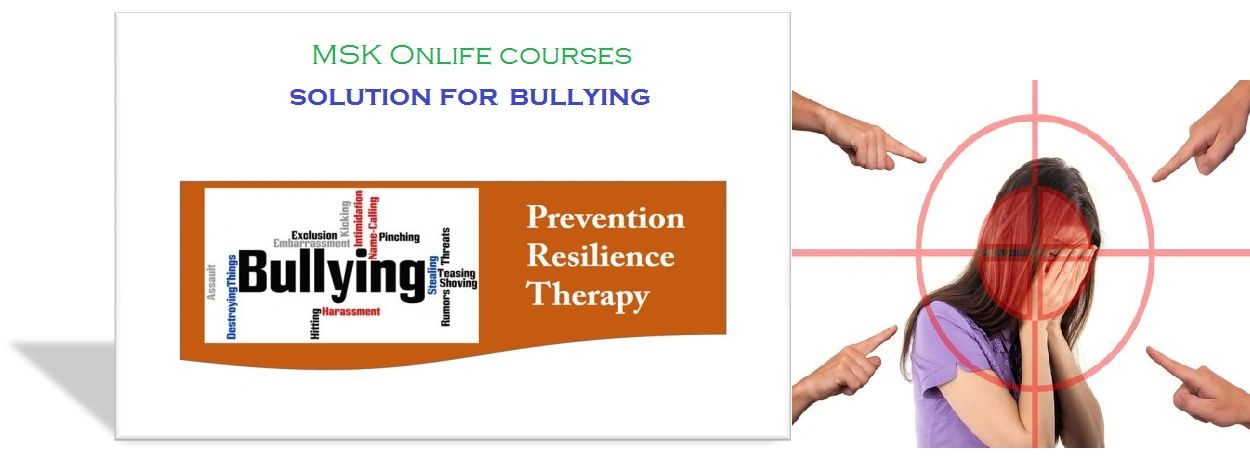
Bullying is a serious issue that affects people of all ages and can occur in various settings such as schools, workplaces, and online. It is defined as the use of force, coercion, or threat to abuse, dominate or intimidate another person intentionally. Bullying can cause significant distress and harm to the victim, both physically and emotionally. In this blog post, we will discuss the definition, prevalence, and impact of bullying on the victim.

Contents
Definition of Bullying
Bullying is a deliberate and repeated behavior that involves an imbalance of power between the bully and the victim. It can take many forms, such as physical, verbal, or psychological, and can occur in person or online. The bullying behavior can include teasing, name-calling, exclusion, spreading rumors, physical violence, and cyberbullying.
Prevalence of Bullying in Different Settings
Bullying can occur in any setting, including schools, colleges, workplaces, and online. According to a recent study, approximately one in three students reported experiencing bullying, with verbal bullying being the most common form. Workplace bullying is also a significant problem, with one in four employees reporting being bullied at work.

The Impact of Bullying on the Victim
The impact of bullying on the victim can be severe and long-lasting. Victims of bullying may experience physical injuries, anxiety, depression, and other mental health issues. They may also have difficulty concentrating, sleeping, and performing everyday tasks. In severe cases, bullying can lead to self-harm, suicidal thoughts, and attempts.
Children who experience bullying are at risk of developing academic and social problems, including decreased academic performance, school absenteeism, and difficulty making friends. In addition, the impact of bullying can extend into adulthood, affecting the victim’s relationships, career, and mental health.

Understanding Bullying
Bullying is a pervasive problem that can have significant negative impacts on individuals who experience it. It can take many forms and can happen in various settings. In this blog post, we will discuss the different types of bullying, signs of bullying, and why people engage in bullying behavior.
Types of Bullying
There are several types of bullying, including physical, verbal, and psychological bullying. Physical bullying involves physical aggression, such as hitting, kicking, or pushing. Verbal bullying is when someone uses words to harm another person, such as name-calling, teasing, or insulting. Psychological bullying involves manipulating or intimidating someone, such as spreading rumors, excluding them from social situations, or threatening them.
Another form of bullying that has become increasingly prevalent in recent years is cyberbullying. Cyberbullying involves using electronic devices and social media to harass, intimidate, or embarrass someone. This can include sending threatening messages, sharing embarrassing photos or videos, or spreading rumors online.

Signs of Bullying
It is important to recognize the signs of bullying so that it can be addressed promptly. Signs of bullying can include physical injuries, changes in behavior, academic problems, and social withdrawal. Victims of bullying may become anxious, depressed, or angry and may avoid situations or people that remind them of the bullying. They may also experience sleep problems or have nightmares.
Why Do People Bully?
There are many reasons why people engage in bullying behavior. Some people bully others because they feel insecure and want to feel powerful or in control. Others may have learned bullying behavior from parents or peers, or they may have experienced bullying themselves. In some cases, people may bully others because they are trying to fit in with a particular social group.

Bullying Prevention
Bullying is a serious issue that can cause significant harm to individuals who experience it. Preventing bullying requires a multi-faceted approach that involves recognizing and reporting bullying, implementing strategies for prevention, and involving parents, educators, and peers in prevention efforts.
How to Recognize and Report Bullying
Recognizing and reporting bullying is critical for preventing further harm. It is essential to educate children and adults on how to recognize bullying behaviors, such as physical aggression, verbal insults, and social exclusion. It is also important to have clear reporting procedures in place for victims or witnesses to report incidents of bullying.

Strategies for Preventing Bullying
Preventing bullying requires a combination of individual and systemic strategies. Some individual strategies include promoting empathy and kindness, teaching conflict resolution skills, and encouraging bystander intervention. Systemic strategies include implementing school-wide anti-bullying policies, providing professional development for educators on bullying prevention, and involving parents and community members in prevention efforts.
Role of Parents, Educators, and Peers in Preventing Bullying
Parents, educators, and peers all play a critical role in preventing bullying. Parents can promote positive behavior and values at home, such as empathy, respect, and kindness. Educators can create a safe and inclusive learning environment by promoting positive behavior, addressing bullying incidents promptly, and implementing effective prevention strategies. Peers can also help prevent bullying by standing up for their peers, promoting inclusion and kindness, and reporting incidents of bullying.

Resilience Therapy
Resilience therapy is an evidence-based approach that aims to help individuals develop the skills they need to cope with stress, adversity, and trauma. It involves identifying personal strengths and resources and using them to build resilience and overcome challenges. Resilience therapy can be particularly effective for individuals who have experienced bullying, as it can help them recover from the negative impact of bullying and develop the resilience they need to move forward.
Definition and Benefits of Resilience Therapy
Resilience therapy is a form of psychotherapy that focuses on building resilience and coping skills. It is based on the understanding that everyone has the capacity for resilience, and that resilience can be developed and strengthened with practice. Resilience therapy can help individuals develop a positive mindset, build healthy coping strategies, and overcome challenges and adversity.
The benefits of resilience therapy are many. It can help individuals develop a sense of control over their lives, improve their relationships, and increase their overall well-being. Resilience therapy can also help individuals recover from trauma and reduce the symptoms of depression and anxiety.

Techniques for Building Resilience
There are many techniques that can be used in resilience therapy to help individuals build resilience. Some of these techniques include mindfulness, cognitive restructuring, and positive psychology interventions. Mindfulness involves focusing on the present moment and cultivating a sense of calm and self-awareness. Cognitive restructuring involves challenging negative thoughts and beliefs and replacing them with more positive and empowering ones. Positive psychology interventions involve focusing on positive experiences, emotions, and strengths to cultivate a sense of optimism and resilience.
How Resilience Therapy Can Help Victims of Bullying
Resilience therapy can be particularly effective for individuals who have experienced bullying. Victims of bullying often experience a range of negative emotions, including fear, shame, and low self-esteem. Resilience therapy can help individuals develop the skills they need to cope with these emotions and overcome the negative impact of bullying.
Through resilience therapy, victims of bullying can learn to identify their strengths and resources, develop healthy coping strategies, and cultivate a sense of optimism and hope for the future. Resilience therapy can also help individuals develop a sense of control over their lives and build positive relationships with others, which can help reduce the risk of future bullying incidents.

MSK Life Clinic Foundation’s Bullying Prevention and Resilience Therapy
The MSK Life Clinic Foundation in Coimbatore, Tamilnadu, India, has launched a therapeutic consultation service called Bullying Prevention and Resilience Therapy. This service is designed to help individuals who have experienced bullying develop the resilience they need to overcome the negative impact of bullying and thrive.
Description of the Therapeutic Consultation
The Bullying Prevention and Resilience Therapy consultation is a comprehensive service that includes assessment, therapy, and support. The service is delivered by qualified mental health professionals who have experience working with individuals who have experienced bullying. The consultation includes:
- Initial assessment: The consultation begins with an initial assessment to determine the individual’s needs and develop a personalized treatment plan.
- Therapy sessions: The consultation includes therapy sessions that focus on building resilience and developing coping strategies. Therapy sessions may include mindfulness, cognitive restructuring, and positive psychology interventions.
- Support: The consultation includes ongoing support to help individuals implement the skills they learn in therapy and build resilience over time.

Benefits of the Service
The Bullying Prevention and Resilience Therapy service has many benefits for individuals who have experienced bullying. The service can help individuals:
- Develop a positive mindset: Resilience therapy can help individuals develop a positive mindset and focus on their strengths and resources.
- Build healthy coping strategies: Resilience therapy can help individuals develop healthy coping strategies to manage stress and adversity.
- Overcome the negative impact of bullying: Resilience therapy can help individuals recover from the negative impact of bullying and develop the resilience they need to move forward.
- Improve overall well-being: Resilience therapy can improve overall well-being by reducing symptoms of depression and anxiety and improving relationships with others.
How to Access the Service
To access the Bullying Prevention and Resilience Therapy service, individuals can call the MSK Life Clinic Foundation directly. The service is available to individuals of all ages who have experienced bullying. The service is delivered in a safe and confidential environment, and all therapists are trained to provide compassionate and effective care.

We welcome you to experience our services! To find out more about us, type ‘MSK Life Clinic Foundation‘ on google.com or click this link. You can find more information about MSK Life Clinic at msklifeclinic.in and YouTube channel named MSK Life TV! Stay tuned to facebook.com/gsexperts to know our services from time to time.

Conclusion
Bullying is a pervasive issue that affects individuals of all ages in various settings. It is crucial to address bullying and provide support to victims to prevent its negative effects. The Bullying Prevention and Resilience Therapy service provided by the MSK Life Clinic Foundation is a vital resource that can help individuals build resilience and overcome the negative impact of bullying.
It is essential to recognize the signs of bullying and encourage victims to seek help and support. Victims of bullying may feel embarrassed or ashamed and may not want to disclose their experiences. Therefore, it is essential to create a safe and supportive environment that encourages open communication.
In conclusion, the Bullying Prevention and Resilience Therapy service provided by the MSK Life Clinic Foundation is an essential step in addressing bullying and supporting victims. If you or someone you know has experienced bullying, seek help and support. Remember that you are not alone, and help is available. Let us all take responsibility to prevent bullying and create a safe and supportive environment for everyone. Together, we can make a difference and promote kindness, empathy, and respect.
DISCLAIMER: Articles on this website contain affiliate links from Instamojo and Amazon websites. Because we are the participants in the Amazon Services LLC Associates Program & Instamojo Referal Program, which are designed to provide a means for sites to earn advertising fees by advertising and linking to amazon.in and Instamojo.com.


